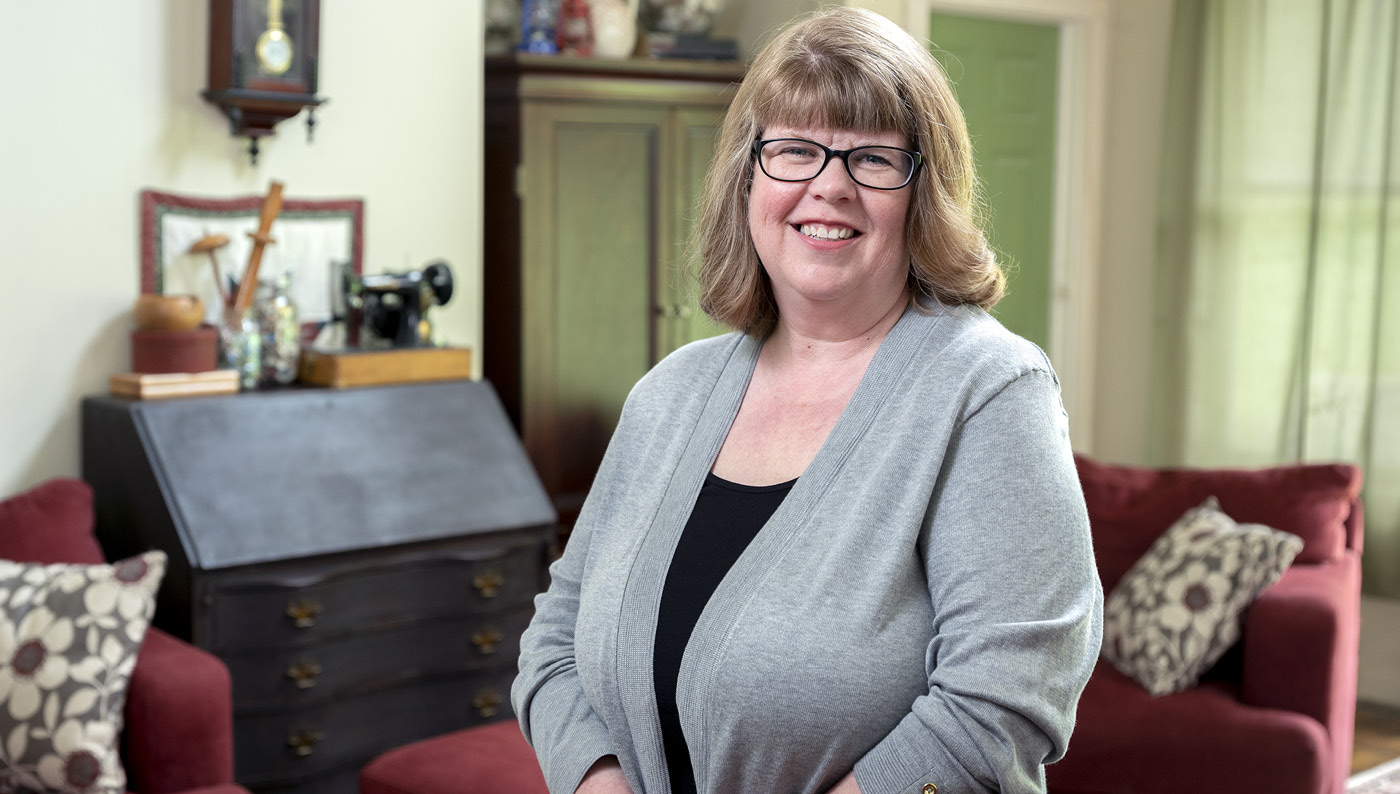MPA Student Creating a New Future for Herself from History

Bonnie Schoonmaker is creating a second act career that works for her family’s unique needs and circumstances, while honoring her own passion and interests.
An office manager for 22 years, Schoonmaker was laid off when the company was sold. She devoted her time to caring for her husband, who was injured in the military in the 1980s and had become completely physically disabled, and home schooling her granddaughter.
“At some point, I realized that I had to think about my own future,” she said. “I decided that if I was going to go back to school, it would be for something I’m truly passionate about, and that is history.”
It had been 30 years since she was in a classroom when she enrolled in Excelsior’s bachelor’s program in History. “It was a little intimidating to think about the first course, but I had a professor who was very understanding. I was a bit rusty, but the skills came back fairly quickly.” She discovered that she was not alone; many Excelsior students are returning to college after years away from school.
Her favorite courses were Introduction to Public History, History of Women in America, and Colonial America. She is from Columbia County, NY, and the program gave her a deeper respect for the roots of the area. “Being raised in such a historically rich area as New York’s Hudson Valley, it is easy to take for granted the wonderful history that is right under your nose.”
She took a business course as an elective and did her final project on the business of history. It addressed how the expansion of technology relates to history and has enabled people to access history more easily. “People can relate to history so much better because they have it right at their fingertips. It’s exciting that those connections can be made.”
She appreciates this from another perspective, having been an independent home educator since she home-schooled her daughter in the late 1990s. Now she co-home-schools her granddaughter with her daughter, who works nights. “We no longer have to hop on a train and go to the city to see history!”
After finishing her degree in 2017, she considered going on for a master’s right away, but encountered complications in her personal life and decided to take some time to consider her next step.
She kept thinking about the business side of history and the importance of protecting and preserving it. In fact, during her undergraduate program, she had sought permission to take a graduate-level course in Grant Writing for that reason. Unfortunately, the course was cancelled, but her interest in writing grants to support history remained. She thought she might want to work for a nonprofit related to history. So she decided to pursue the Master of Public Administration and re-enrolled in Excelsior this past fall.
She draws from her own experiences with public administration to inform discussions, having served a term on the local planning board. “I find that a good basis of information on which to reflect,” she said. “Particularly with a local board, you see firsthand how decisions affect people; you run into them on the street. You know you can’t keep everyone happy, but try your best within the confines of the law.”
She also has more than 30 years of personal experience dealing with the Veterans Administration. “My husband going from active duty to a disabled veteran was not a seamless process. It was a several-year path,” she recalled. “I have known parts of the system I wish I didn’t, but you have to have knowledge of the system to get what you want. It’s frustrating to see people who don’t have that knowledge have such difficulty getting what they need.”
She thought about getting involved in educating people about the system and encouraging them to be persistent and speak up about what doesn’t work and what they need. “That’s the only way policies and procedures will change,” she said.
She found herself less interested in working in these organizations and leaning more toward education. So while pondering ways to utilize her degrees and work from home, she thought of teaching online. “It would give me the opportunity to work with something I have a passion for, like history, while fulfilling my family obligations, which I am equally passionate about.”
She is surprised the option didn’t occur to her earlier. “It’s a natural extension of what I’m already familiar with; as an independent home educator, I am responsible for developing my own curriculum and keeping academic records as well as hands-on teaching.”
She is on target to complete her master’s program next spring and is already exploring how to get started in online teaching – perhaps with a course on the business of history.
Schoonmaker offers practical encouragement to adults considering a degree. “I would encourage them to take the first step, because that’s the hardest. Sometimes there is anxiety about making all the necessary connections and getting the technology to work right. But just take that first step and then create a routine that works for your life.” The biggest mistake, she says, would be not trying.


